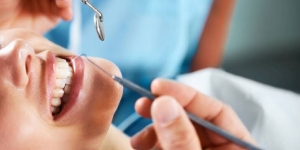What is Periodontal Access Surgery?
At Kew Periodontics and Dental Implants, we provide specialist treatment to each of our valued patients. We educate them on what periodontal disease is, the risks involved in allowing it to progress, as well as treatment options that we believe are most appropriate in managing it.
Our skilled clinical team are led by periodontists Dr Allison Dean and Dr Louise Liu, two of the most respected and sought-after practitioners working across Melbourne. Whilst we offer a range of treatment options to our patients, in some cases surgery may be the best option to treat periodontal disease, particularly if of an advanced nature.
In cases when deep pockets exist around the teeth, it can be very difficult to eliminate the underlying bacteria by non-surgical scaling and root planing. Your periodontist may notice that there is bleeding or pus within the deep pocket, indicating that your gum disease is likely to be progressing. Without further treatment, it is likely that more of the gum tissue and supporting bone will be lost.
Your periodontist may recommend periodontal surgery so that they can gain better ‘access’ to remove the harmful bacteria. This may be the case if the bacteria is too deep to reach when cleaning from the surface, or is hidden between the roots of your teeth. The removal of the bacteria reduces the likelihood that your periodontal disease will progress.
With our specialist knowledge and experience in periodontal surgery, Melbourne patients can be confident of receiving a professional diagnosis and treatment of their periodontal disease.
Enquire with our clinic today to learn if periodontal access surgery is the right option for you.
What Does Periodontal Access Surgery Involve?
Periodontal access surgery is carried out under local anaesthesia in the dental chair. The area will be numb during the procedure and will take approximately 1-2 hours to wear off. The patient is awake during the procedure and will not feel any pain once the area is numb.
During periodontal surgery, the gums are folded back to allow better access to the problem area. The harmful bacteria can then be removed successfully. The periodontist will use the same instruments that were used during non-surgical scaling and root planing.
In some instances, the damaged bone around the teeth has become irregular as a result of periodontal disease. In this case, the bone is smoothed to give it a more natural form (osseous surgery). This makes the area easier to clean and maintain.
In some cases, your periodontist may recommend a regenerative procedure to help improve the bone and tissue support around your teeth. This will depend upon what is seen on your x-rays and during the periodontal access surgery procedure. (Link to Regenerative Procedures)
At the completion of the procedure, the gum tissue is repositioned back in place and sutures (‘stitches’) are used to help with gum healing. In some cases, a surgical dressing may be placed over the area. Your periodontist will then see you in two weeks’ time to review how the area is healing. They will also remove any remaining sutures or the dressing at that appointment.
What Happens after the Surgery?
Your periodontist will provide you with detailed instructions about how to care for your mouth after your surgery. You will also be given written instructions to take home.
As noted, your periodontist will see you two weeks following your surgery to review how the area is healing. They will also remove any remaining sutures or the dressing at this appointment.
Preparing for Your Surgery:
Eating: It is important to eat a normal breakfast or lunch prior to your surgery.
Medications: Continue to take your usual medications. You will be advised if there is any need to vary this.
If you have been advised by your doctor or medical specialist to take antibiotics prior to receiving dental treatment (e.g. following a hip replacement or due to a heart condition), please take the required dose of antibiotics one hour prior to your surgery.
Oral Hygiene: Be sure to clean your teeth thoroughly to ensure there is minimal plaque present prior to your surgery.
Smoking: It is advisable for your oral and general health that you to quit smoking all together. At the very least, it is important that you try to minimise your smoking before and after your surgery.
Visit A Leading Clinic in Periodontal Gum Surgery Across Melbourne
The specialist team here at Kew Periodontics and Dental Implants are proud to provide our patients a welcoming and comfortable environment within our practice. We strive to help patients feel relaxed during their experience with us, as well as confident with the outcomes they achieve.
Our treatment and surgical options are professionally customised to each individual patient. Our goal is address any underlying issues and concerns and also to achieve improved oral health, providing the added confidence that comes with it.
To learn more about periodontal gum surgery, Melbourne patients are encouraged to call 03 9853 7700 and speak with one of our friendly treatment co-ordinators.
For All Periodontal Surgery Enquiries, Melbourne Patients Can Get in Touch with Our Practitioners
Our friendly and passionate team are available to answer any questions our patients may have about their upcoming surgery or treatments, ensuring that they understand each step of the procedure.
Speak with our treatment co-ordinator today by calling 03 9853 7700.

